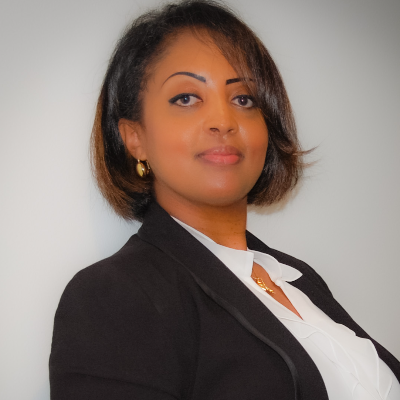Caribbean History
Homework Help & Tutoring
We offer an array of different online Caribbean History tutors, all of whom are advanced in their fields and highly qualified to instruct you.
Caribbean History
The Caribbean is a sea with a group of islands having a relatively modest role in international affairs. Most of the islands are small, their economies are relatively weak, and their history is usually traced back merely to the end of the 15th century when one of the tiny islands now belonging to The Bahamas happened to be the first land reached by Christopher Columbus and his expedition. The Caribbean, however, is an amazingly diverse region - a true crossroads of races, nations, religions, and civilizations.

The fact that the Europeans discovered the region in 1492, of course, does not suggest that it did not have any history prior to this date. The islands were populated by a group of Native American tribes traditionally known as the Arawak (recently also called Taino). Immediately upon their discovery, all major Caribbean islands (including Cuba, Hispaniola, Trinidad, Jamaica and Puerto Rico) were proclaimed the property of the Spanish dominion. The Spanish took an effort to settle the islands, either assimilating or pushing away the natives. The diseases the Europeans brought with them caused disastrous epidemics that swept away thousands of lives of indigenous inhabitants of the islands.
The Spaniards who conquered vast areas in South and North America were not able to maintain effective control over all of the islands in the Caribbean, and many of these were soon overtaken by other powerful seafaring nations of the time such as Britain, The Netherlands and France. By the end of the 16th century, all three nations had fortresses, ports and colonial administrations in different parts of the Caribbean region. This largely shaped the subsequent history of the Caribbean for centuries to follow. The Dutch claimed the southern part of the region, along the Venezuelan coast, on the islands of Curacao, Bonaire, and Aruba, as well as some tiny islands in the Lesser Antilles Archipelago. The British took over Jamaica and Trinidad, along with a number of smaller islands such as the Cayman Islands, Saint Kitts, Barbados, and Grenada. The French established a foothold on the island of Hispaniola (now known as the Republic of Haiti), Martinique, Guadeloupe and a few other tiny islands. The Spanish retained Cuba and Puerto Rico.
During colonial times, the basis of the island economy across the Caribbean was the cultivation of sugar cane. Labor force in huge numbers was necessary for that, and all the European colonial powers started bringing in slaves from Africa, in very much the same fashion as did what would later become the United States of America. The people of African descent now comprise a high percentage of population in every island nation in the Caribbean. In some of them (Haiti, Jamaica, The Bahamas) they are the absolute majority. African music (such as reggae), African crafts, and African religious beliefs (particularly voodoo in Haiti) are still a prominent part of the modern Caribbean culture.
Haiti became the first independent nation in the region following the Haitian Revolution that lasted from 1791 to 1804. Encouraged by the ideals of the Great French Revolution of 1789, the Haitians abolished slavery and proclaimed a republic. As the Spanish colonial empire entered the era of decline in the 19th century, Cuba and the Dominican Republic became independent nations with help from the U.S., which was interested in further weakening the Spanish influence in the Americas. Puerto Rico, in turn, chose to become a nation associated with the United States - the status it maintains today.
Many other smaller nations in the Caribbean gained independence, mostly from the UK, in the 1960s and 1970s. Among them are Barbados, Grenada, the Bahamas, and others. The islands that belonged to the Netherlands and France preferred to maintain ties with their former colonial centers. The islands of Martinique and Guadeloupe have the status of the “overseas departments” of France while the former Dutch colonies are self-governing entities within the Kingdom of The Netherlands.
Another major event that placed the Caribbean island of Cuba into the epicenter of world politics was the Communist Revolution in Cuba in 1953-59, under the leadership of Fidel Castro and Che Guevara. This caused the long-lasting U.S. embargo against Cuba, and peaked during the Cuban missile crisis of 1962. The intention of then-Soviet leader Nikita Khruschev was to install nuclear-armed missiles in Cuba, which put the world on the brink of World War III.
To fulfill our tutoring mission of online education, our college homework help and online tutoring centers are standing by 24/7, ready to assist college students who need homework help with all aspects of Caribbean history. Our history tutors can help with all your projects, large or small, and we challenge you to find better online Caribbean history tutoring anywhere.
College Caribbean History Homework Help
Since we have tutors in all Caribbean History related topics, we can provide a range of different services. Our online Caribbean History tutors will:
- Provide specific insight for homework assignments.
- Review broad conceptual ideas and chapters.
- Simplify complex topics into digestible pieces of information.
- Answer any Caribbean History related questions.
- Tailor instruction to fit your style of learning.
With these capabilities, our college Caribbean History tutors will give you the tools you need to gain a comprehensive knowledge of Caribbean History you can use in future courses.
24HourAnswers Online Caribbean History Tutors
Our tutors are just as dedicated to your success in class as you are, so they are available around the clock to assist you with questions, homework, exam preparation and any Caribbean History related assignments you need extra help completing.
In addition to gaining access to highly qualified tutors, you'll also strengthen your confidence level in the classroom when you work with us. This newfound confidence will allow you to apply your Caribbean History knowledge in future courses and keep your education progressing smoothly.
Because our college Caribbean History tutors are fully remote, seeking their help is easy. Rather than spend valuable time trying to find a local Caribbean History tutor you can trust, just call on our tutors whenever you need them without any conflicting schedules getting in the way.




